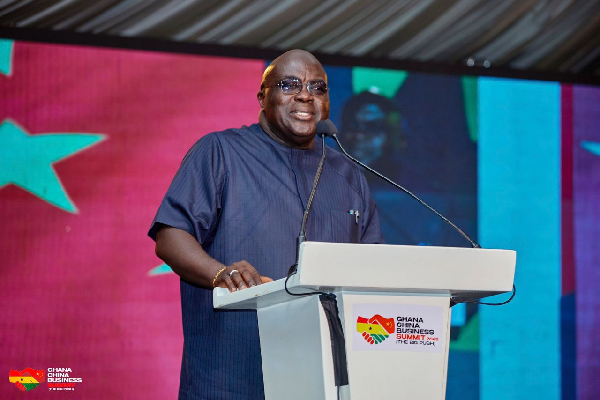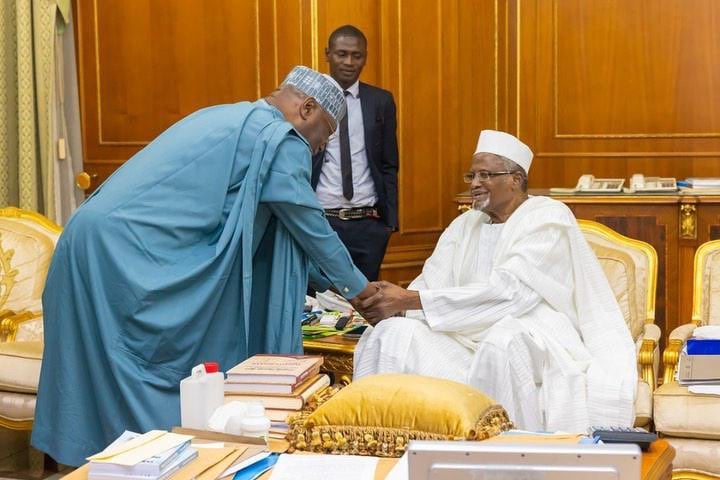DR Congo, Rwanda sign U.S.-brokered peace agreement to end 30-year conflict
Democratic Republic of the Congo, DRC, and Republic of Rwanda have signed a peace agreement on Friday in Washington, D.C, to end the more than 30-year protracted violent conflict in DRC.
The Office of the Spokesperson for the U.S. Department of State disclosed the Ministerial signing of the Peace Agreement between officials of the two countries.
Foreign Minister Thérèse Wagner signed on behalf of the Government of the DRC, Foreign Minister Olivier Nduhungirehe signed on behalf of the Government of Rwanda, while U.S. Secretary of State Marco Rubio signed as a witness.
The Ministerial signing of the Peace Agreement marked a historic milestone in the pursuit of peace and prosperity for the DRC, Rwanda, and the broader Great Lakes region of Africa.
U.S. President Donald Trump welcomed the Foreign Ministers to the Oval Office to sign the historic peace agreement, ending a 30-year conflict.
“Today, the violence and destruction come to an end, and the entire region begins a new chapter of hope,” Trump said.
Rubio, in his remarks at the event, said: “President Donald Trump is a president of peace. He really does want peace. He prioritizes it above all else.”
“The Peace Agreement entered into force upon signature, and the United States reaffirms its commitment to supporting its full and timely implementation,” Rubio said.
“In close coordination with the African Union, Qatar, and Togo, the United States will continue to engage both parties to ensure implementation of the obligations laid out in the agreement.
“In the coming weeks, we look forward hosting a Summit of the Heads of State at the White House to further advance peace, stability, and mutual economic prosperity.”
Foreign Minister of DRC, Wagner, regretted the wounds and pains the war has inflicted on the people of her country saying, some wounds will heal but they will never fully disappear.
“They may grow over but the skin will forever remain thin and frail. And deep down the flesh will still remember,” she said.
“At times we will feel numb and at others we will feel a sudden pang that will remind us of what was lost forever.
“The scars we carry on our bodies and in our souls will remind us of what must never be forgotten, repeated or accepted.”
Wagner said DRC “want a peace that is real, lived, shared and built with us. To our fellow citizens in the east, this agreement was signed with you in mind.”
“These are not just words on paper. They must now be translated into action, justice, accountability and political will. This peace agreement is the starting point, not the end goal.
“It must now be followed by disengagement, justice and the return of displaced families and the return of refugees both to the DRC and Rwanda.”
The Rwandan Foreign Minister, Nduhungirehe, said the signed agreement also built on the African-led peace initiatives, which were ably led by the African Union facilitator, President Faure Gnassingbé of Togo.
“The heart of this peace agreement is the decision to establish a standing joint security coordination mechanism between DRC and Rwanda,” he said.
“The first order of business is to begin implementing of the concept of operations for the neutralisation of the FDLR, to be accompanied by a lifting of Rwanda’s defensive measures.
“This is grounded in the commitment made here for an irreversible and verifiable end to state support for FDLR and associated militias.”
Nduhungirehe said FDLR – Democratic Forces for the Liberation of Rwanda – “is no ordinary militia; it is the remnant of the forces which committed the genocide against the Tutsi in 1994, killing over a million people.
“With this agreement, we also committed to facilitate the return of refugees in our respective territories, with the support of the UNHCR,” he said.
Building upon the Declaration of Principles signed by both parties on April 25, 2025, the agreement reflected months of sustained negotiations, led by U.S. Advisor Massad Boulos.
The department said discussions addressed longstanding issues of governance, security and economic integration.
They laid the foundation for a comprehensive agreement that confronts the root causes of a protracted conflict and supports a sustainable path toward regional peace and stability.
The signing ceremony was attended by African Union Chairperson Mahmoud Ali Youssouf, Togolese Foreign Minister Robert Dussey, on behalf of the African Union, and Qatari Minister of State Mohammed bin Abdulaziz Al-Khulaifi as observers.
Rubio, U.S. Under Secretary for Political Affairs Allison Hooker and Senior Adviser.
Boulos hosted the Ministerial signing of the Peace Agreement held between the two countries at Washington, D.C.
With their signatures, the peace agreement will enter into force, bringing an end to a 30-year conflict and setting both countries and their people on a path towards peace and prosperity. (NAN)












